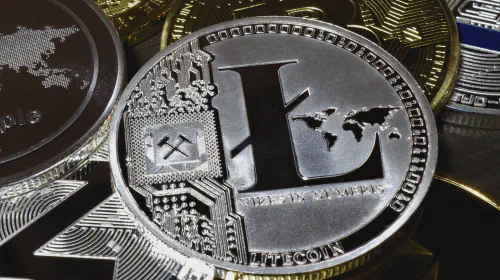The Journey of Digital Payment Transactions: Evolution, Benefits, Challenges, and Future Trends
Salomon Kisters
Jun 2, 2023This post may contain affiliate links. If you use these links to buy something we may earn a commission. Thanks!
Digital payment transactions have revolutionized the way people conduct business and manage finances around the world. From the days of barter trades to the present time where virtual currencies are on the rise, the journey of digital transactions has been a remarkable one.
It has overcome many obstacles, ranging from security concerns to a lack of accessibility, over the years. In this blog post, we will explore the history of digital payment, the milestones that contributed to the rise of online transactions, the benefits that come with it, and the challenges that need to be addressed.
Join us as we delve into the dynamic world of digital payment transactions and the possibilities it holds for the future.
The Evolution of Digital Payments: From Cash to Cryptocurrency
Digital payments have come a long way since their inception. The journey started with the use of traditional cash as a means of exchange, which gradually evolved to include various non-cash modes of payment such as checks, credit cards, and debit cards. However, with the advent of technology, the world of payments has witnessed a significant shift towards digital payments.
The first electronic payment system was introduced in the late 1960s, and it facilitated the transfer of funds between banks using a computer network. Since then, digital payments have constantly evolved with the development of the Internet and mobile technology.
The rise of e-commerce in the early 2000s led to the development of new payment systems such as PayPal, which allowed consumers to make secure online transactions without the need for a credit card. The mobile revolution that followed led to the development of mobile payments, which enabled consumers to make payments using their mobile phones.
The latest addition to the world of digital payments is cryptocurrency, which is a digital asset that works as a medium of exchange and is based on blockchain technology. Cryptocurrencies provide a viable alternative to traditional payment methods, and their decentralized nature makes them immune to government control and manipulation.
In conclusion, the evolution of digital payments has been a fascinating journey, with each new development bringing greater convenience, security, and flexibility to consumers. From cash to cryptocurrency, the world of digital payments has come a long way and will continue to evolve with changing technology and consumer needs.
The Rise of Mobile and Contactless Payments: How They Changed the Game
Gone are the days when we had to carry wallets full of physical cash everywhere we went. Thanks to the rise of modern technology, we can now make digital payment transactions from anywhere at any time. Initially, online payments were the only way to pay digitally. However, with the rise of mobile and contactless payments, the game has changed.
Mobile payments involve using a mobile device, such as a smartphone or tablet, to make payment transactions. This mode of payment is convenient, especially for the younger generation who rely on smartphones for most of their activities. Additionally, mobile payments offer a higher level of security compared to cash or physical cards since they use encryption methods to protect user information.
Contactless payments, on the other hand, involve tapping a card or mobile device on a reader to make a payment. This method is faster compared to traditional chip and PIN payments which can take a while to complete. Additionally, contactless payments are safer since you don’t have to enter your PIN to complete the transaction.
Since the outbreak of the COVID-19 pandemic, contactless payments have become even more popular. This is due to the need for contactless transactions to minimize the spread of the virus. As a result, many merchants have adopted contactless payment methods to provide a safer shopping experience for their customers.
Overall, the rise of mobile and contactless payments has revolutionized the digital payment industry, making it easier, faster, and more secure than ever before.
The Role of Payment Gateways and Processors in Online Transactions
Digital payment transactions have become increasingly common in recent years, and this trend is likely to continue. Payment gateways and processors play a crucial role in making this possible by facilitating the transfer of funds between parties in a secure and efficient manner.
Simply put, a payment gateway is a service that processes payments between customers and merchants. When a customer makes a purchase through an online store, the payment gateway securely transmits the payment information to the processor, which then verifies the transaction and transfers funds from the customer’s account to the merchant’s account.
Payment processors act as intermediaries between banks, payment networks, and merchants. They provide the hardware and software needed to process transactions, including encryption and tokenization to protect sensitive customer information.
In addition to providing secure payment processing services, payment gateways and processors also offer features such as fraud detection and prevention, chargeback management, and recurring billing options. These tools help businesses ensure that transactions are processed smoothly and that customers are protected from fraud and other risks.
Overall, the role of payment gateways and processors in online transactions is essential to the success of digital commerce. Without their services, businesses would struggle to process payments securely and efficiently, which would ultimately hinder the growth of e-commerce.
Security Concerns in Digital Payments: How They are Addressed
Digital payment transactions have become increasingly popular among consumers and businesses as a convenient and fast way to complete transactions. However, concerns around the security of these transactions have also grown.
One of the most significant concerns around digital payments is the potential for fraud and identity theft. To address these concerns, many payment processors and financial institutions have implemented advanced security measures, such as encryption and tokenization, to protect sensitive data from being accessed or intercepted by unauthorized parties.
Another common security concern is the risk of data breaches, where a large-scale attack on a payment system can result in the loss of millions of consumers’ sensitive information. To combat this, many payment providers have invested heavily in highly secure infrastructure and regularly conduct rigorous security audits on their systems to identify and address any vulnerabilities.
Additionally, some providers offer multi-factor authentication to help ensure that only authorized users are able to complete transactions. This may involve requiring the user to enter a password and then confirming their identity through a secondary verification method, such as a fingerprint or a code sent to their mobile device.
Overall, while there are certainly valid security concerns around digital payment transactions, the industry has taken significant steps to address these issues and provide users with peace of mind when making online transactions.
The Future of Digital Payments: What to Expect in the Coming Years
With the increasing adoption of digital payment methods, it’s no surprise that the industry is constantly evolving to meet the needs of consumers. The future of digital payments is bright and holds a lot of promise. Here are some of the things we can expect to see in the coming years:
Enhanced Security Measures
As the use of digital payments grows, so does the risk of cyber attacks. To address this issue, we can expect to see enhanced security measures being implemented in the future. This can include biometric authentication, encryption technologies, and fraud detection tools.
Expansion of Digital Wallets
Digital wallets are becoming more popular, and we can expect to see more merchants embracing them in the future. This will lead to more convenience for consumers, as they won’t need to enter their payment information every time they make a purchase.
Greater Integration with IoT
As more and more devices are connected to the internet, we can expect to see digital payments being integrated into the IoT ecosystem. This could include using smart devices to make payments or using digital payments to pay for services like ride-sharing or food delivery.
Emergence of Cryptocurrencies
With the rise of cryptocurrencies, we can expect to see them being used more frequently in digital payments. This can include using Bitcoin or other cryptocurrencies to pay for goods and services or using blockchain technology to process payments more securely.
Overall, the future of digital payments is exciting, and with new innovations and technologies emerging every year, it’s sure to be a fascinating journey to watch.
Stay informed with the latest insights in Crypto, Blockchain, and Cyber-Security! Subscribe to our newsletter now to receive exclusive updates, expert analyses, and current developments directly to your inbox. Don't miss the opportunity to expand your knowledge and stay up-to-date.
Love what you're reading? Subscribe for top stories in Crypto, Blockchain, and Cyber-Security. Stay informed with exclusive updates.
Please note that the Content may have been generated with the Help of AI. The editorial content of OriginStamp AG does not constitute a recommendation for investment or purchase advice. In principle, an investment can also lead to a total loss. Therefore, please seek advice before making an investment decision.

Understanding Mining Pools: Collaboration for Cryptocurrency Mining
A mining pool is a collaborative effort among cryptocurrency miners to increase their chances of earning rewards by combining resources and working together to solve complex mathematical problems.

Litecoin: A Peer-to-Peer Cryptocurrency for Faster Transactions
Litecoin is a peer-to-peer cryptocurrency created by Charlie Lee with faster transactions and lower costs compared to Bitcoin. Learn more about Litecoin here.

How Smart Contracts are Used for Gambling
In recent years, the rise of blockchain technology has led to the introduction of decentralized betting platforms and applications, enabled by widespread internet access and improved mobile phone availability.
Protect your documents
Your gateway to unforgeable data. Imprint the authenticity of your information with our blockchain timestamp